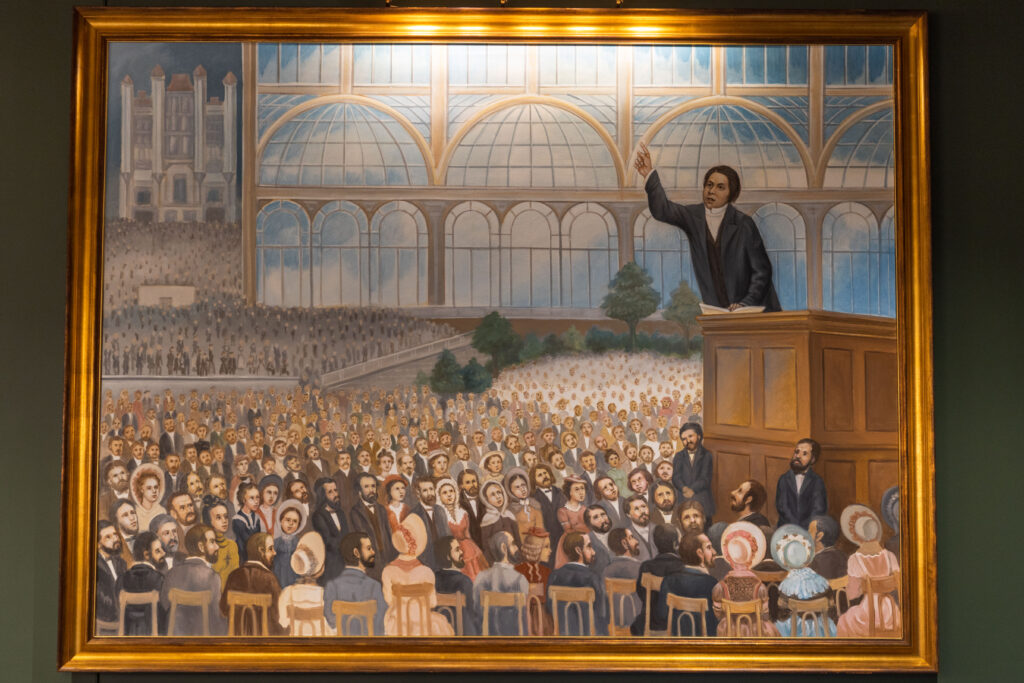
In the winter of 1853, the situation at the New Park Street Chapel was dire. This congregation was previously pastored by giants like Benjamin Keach, John Gill, and John Rippon, and was a leading church among Baptists. But by 1854, it had fallen into serious decline. Attendance was down to a few dozen. They occupied a cavernous building in disrepair, reminding them of their steep decline. One deacon had just written to the Baptist Union, letting them know that they could report no baptisms in the past year and were without a pastor.
But on December 18, 1853, a country boy with an Essex accent, a bad haircut, and a polka-dotted handkerchief climbed the pulpit. There, he preached his very first sermon in London, “The Father of Light,” on James 1:17. This was preaching that these people had never heard before: engaging, theological, weighty, and full of the gospel. The congregation urged the deacons to invite him again and by January, he was invited to fill the pulpit two Sundays a month as a kind of candidating period. By April of 1854, the congregation was ready to call him to be their pastor. And so, 19-year-old Spurgeon would become pastor of the New Park Street Chapel in London.
The members of the church eagerly invited their neighbors to hear him, and by the time he was called, church attendance had reached nearly 100. From there, it would only continue to grow. As newspapers began to report on this sensational boy preacher, people began to turn out by the hundreds to hear him preach. Pretty soon, the bridges & roads leading to his church are blocked with traffic every Sunday, with people trying to get in to hear this preacher from the countryside. Londoners had not heard such lively, down-to-earth, passionate, gospel-centered preaching since the days of Wesley and Whitefield.
Spurgeon’s fame as a preacher grew quickly throughout England and the rest of the English-speaking world. So much so that on October 7, 1857, when Queen Victoria called a day of fasting for the mutiny that had taken place in India, 23-year-old Spurgeon was invited to preach the sermon at the fast-day service. There, in the Crystal Palace, to 23,654 in attendance, in this massive space with poor acoustics, Spurgeon preached to his largest audience yet.
He preached a sermon on Micah 6:9, “Hear ye the rod, and who hath appointed it.” In it, Spurgeon called people to tremble before God’s sovereignty over world events and to repent for their many sins, both societally and personally. At the same time, Spurgeon pointed people to the hope that is found by faith in the finished work of Christ.
After the service, reporters interviewed a young girl sitting in the back of the cathedral, and they asked her if she could hear Mr. Spurgeon. She responded, “I could hear him like he was sitting next to me, whispering in my ear.” Spurgeon threw himself into preaching to this massive audience, and it proved to be quite strenuous. Later, he recalled, “I was not conscious, at the close of the service, of any extraordinary exhaustion, yet I must have been very weary, for after I went to sleep that Wednesday night, I did not wake again until the Friday morning.”
The lesson of the palace is this: Preach Christ wherever you are. Whether speaking to a few cottagers or preaching in a vast palace, proclaim Christ’s excellencies and call people to faith in Him.
Things to look for:
- Spurgeon’s sermons display (table display)
- Exeter Hall and Surrey Gardens Music Hall display